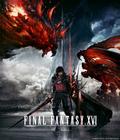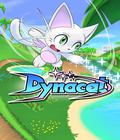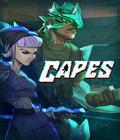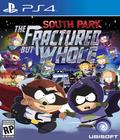Buy South Park: The Fractured but Whole
South Park: The Fractured But Whole follows up moments after the end of the South Park: The Stick of Truth. The New Kid's reign as king lasts a few scant moments before the kids get bored of playing fantasy games and move on to playing superheroes. The New Kid must once again prove his worth to the kids of South Park, who've long since forgotten the events of the first game in favor of the superhero wave. In this particular case, he must team up with Eric Cartman's group of superheroes, Coon N' Friends, to find a lost cat and earn the tremendous $100 reward. Of course, in true South Park fashion, things get rapidly more complex, and before long, the New Kid is involved in the greatest crime wave South Park has ever seen.
The core problem with South Park's writing is that even for fans of the series, the writing is all over the place in style, tact, and tone. The game has some laugh-out loud moments, some uncomfortably tasteless moments, and some foul moments. Like the previous game, it tends to reference South Park's history, from the early irreverent days to the modern more sociopolitical writing, so players are likely going to find something that is particularly gross or ticks them off. There are jokes about children giving lap dances to adults, or you're tasked with collecting suggestive artwork of two characters, and both seem designed to give people the heebie-jeebies.
The writing is strongest when it plays into the superhero and video game jokes, much as the previous game felt strongest when it was about RPGs. TFBW has some really clever tricks and gimmicks, such as the ongoing joke about how battles would occasionally be interrupted by the kids having to get out of the street and pause the "fight" so a car could get past. When the game goes all-in on its humor about kids playing kids and the wackiness of South Park, it's funny. Its social commentary sections tend to fall flatter or feel dated.
TFBW is effectively a mega-length episode of the TV series, and it's a good one. I don't think it's as funny or creative as the original Stick of Truth, but it's still a solid follow-up in terms of writing and character, and it has moments of excellence. The bits that don't work may be enough to sour the game, much like an episode of South Park can be ruined by a particularly annoying joke. There's a least one sketch that had me put down the game for a short while, but by and large, if you like South Park's brand of humor, you'll enjoy the jokes and stories. If you don't, then it may be enough to push you away from the rest of the game.
The combat system in TFBW is an evolution of the original game. The first game used a Paper Mario style of combat, while the new one evolves to a grid-based system. The New Kid and up to three allies are put onto a series of grids and take turns fighting opponents. Every character has a small number of moves, including one Ultimate move, which they can use to attack opponents, with each move targeting specific grids on the map. Attacks can inflict various status effects ranging from bleeding and "grossed out," which do damage over time, to Knockback, which can slam enemies into other enemies. The winner is whichever team has someone standing at the end of the fight.
The combat system is a ton of fun. It's critical to create a strong team and making sure they synergize well, and movement and positioning plays a huge part in success. One of my favorite early-game combos involved using Jimmy, who's a speedy character, to dash through enemies. This also turns him invisible and positions him behind them. Using Super Craig then allowed me to use a Knockback attack to slam the enemy into Jimmy, who did extra damage to them without being at risk due to being invisible. By giving The New Kid psychic powers, I forced enemies to attack the closest foe, which when combined with tanking abilities, gave my team insane durability and room to work around tough fights.
The New Kid, in RPG protagonist fashion, is largely customizable. You begin with access to only a few powers, but as the game progresses, you'll be able to pick and choose from several sets. You can be a physical brawler, a control mage, a healer, or whatever you feel is best. You can equip various artifacts, DNA strands and other power-ups to further customize your play style. This generally allows you to do things like super-charge status effect damage or massively buff the rate at which you gain the Ultimate meter. The New Kid also gains access to "time fart" powers, which allow you to manipulate the flow of battle. For example, Rewind allows you to force an enemy to skip their turn.
Eventually, the power and upgrade system ends up feeling too bloated for its own good. You keep unlocking abilities and upgrades, and they start to feel so excessive that I found myself slotting the biggest numbers and not trying to find the best possible set. It isn't complex so much as it suffers from awkward interfaces that are too simple and messy. If you're into that, there's plenty of room to find the optimal setup, and it's likely the hardest difficult modes would demand it. Generally, you don't have to stress much about it and can equip what feels right without losing much power.
Like the first game, The Fractured But Whole has a skewed difficulty curve. The game is generally good about keeping things fun and fair, and it has some creative boss fights that require careful use of positioning and mechanics. One requires you to bait a boss into setting you on fire, so you can use your character's burning de-buff to ignite plants in the room. Another requires you to constantly move across the stage while an undefeatable enemy follows you. Those fights are some of the high points of the combat system. Other fights just feel a bit lackluster, especially if you're overpowered.
Outside of combat, TFBW focuses on exploring South Park. This is largely a replica of the original game. South Park itself hasn't changed much, and you'll spend the bulk of your time wandering around the city and hitting plot events for more cutscenes. It's fun to explore South Park, but it's tough to pretend that some of the shine hasn't worn off the experience. The first title was a genuine chance to explore the small and bizarre town. The second time feels like, "I've done this before." There are new buildings and new places to see, but it all feels the same. Both the aforementioned time fart abilities, as well as recruitable characters, can be used to access new areas, but in almost every case, this is about using the correct ability in the correct place to get a canned animation to play.
Visually, TFBW is not very different from the first game, but that's not a bad thing at all. The game looks exactly like an episode of the TV show. There's some creativity with the attack animations, which provide some flair. The game is at once visually distinctive and creative while never losing the "paper cut-out" feel of the original product. Likewise, the voice acting is excellent. Pretty much every character is voiced by their original actors, so it feels like an episode of the show. There's also a ton of dialogue, including special quotes for most combinations of characters.
All in all, South Park: The Fractured But Whole is a solid follow-up to the original game. It doesn't change too much, but the new combat system is an improvement over the original, and it retains the same sense of irreverent humor and love for the franchise as the first game. TFBW is a solid RPG on its own merits, and fans of South Park will find a ton to love here. The only thing that drags it down is feeling a bit too similar to the first game despite the differences, and some of the humor can fall dangerously flat. It's a fun, solid, and well-made licensed title that captured the good and bad of South Park while managing to craft an enjoyable gaming experience. What more can fans ask for?
Score: 8.0/10
More articles about South Park: The Fractured but Whole










 With crime on the rise in South Park, the town needs new heroes to rise! Eric Cartman seizes the opportunity to save the town and create the best superhero franchise ever. Players become a member of Coon & Friends and fight for fame and their place beside the other kids.
With crime on the rise in South Park, the town needs new heroes to rise! Eric Cartman seizes the opportunity to save the town and create the best superhero franchise ever. Players become a member of Coon & Friends and fight for fame and their place beside the other kids.
































